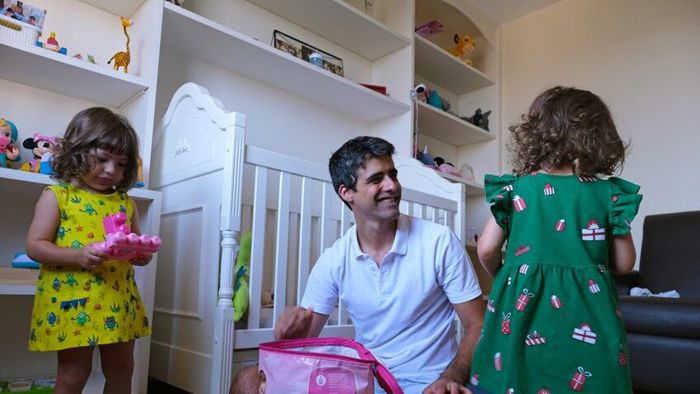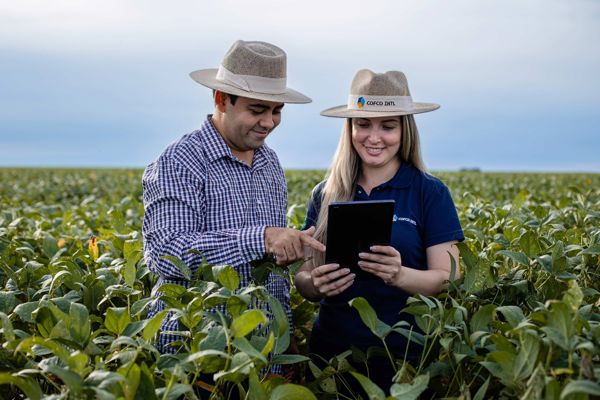
Setting your trading strategy
You take an overview of the pieces. Consider who your opponent is. Plan a strategy and put it into motion. Commodities trading in the over-the-counter market is not a game, but for Guilherme De Castro Achcar, Trading Manager for COFCO International in Brazil, there are similarities in how to approach it. He likes to play games such as chess, where he plans the position he wants to be in and then the tactics to get there, and adapts as necessary according to whom he is playing against.
Setting your trading strategy
“The over-the-counter market is people against people, companies against companies. It’s like a game of chess or poker as the market is closely related to people’s actions, rather than funds, computers, algorithms or macro movements,” says Guilherme De Castro Achcar, Trading Manager for COFCO International in Brazil.
“You know who’s on the other side, the profile of the company and the personalities so it’s different from selling a contract in a foreign futures exchange. Here, you see the pieces moving. You set your strategy like a game and then deliver on it.”
The perfect spot for me
In his role, Achcar is responsible for the trading book for soy meal and soy bean oil in Brazil, selling products produced at the Rondonopolis soy crushing plant in Mato Grosso state, and the containers book for shipping these products. He has progressed from a trainee in the Noble Group, working on the origination desk and then into trading and as a crush manager and joining COFCO International after its acquisition of Noble’s agriculture division.
Straight after university, he spent a year in banking and quickly realised he preferred to work with something tangible rather than just with figures.
Now, his team trades about 3 million metric tonnes of soybean meal, 300,000 metric tonnes of soybean oil and 1.4 million metric tonnes of soybeans per year. The soybeans go to the crushing plant, 80% of the oil goes to India with the rest to China and Bangladesh, and the soy meal is sold to Thailand, Indonesia and Japan. The oil is mostly reprocessed and used as cooking oil for human consumption and the soymeal is blended with corn, amino acids or wheat in the feed formula for animal consumption.
Achcar’s team has direct dealings with other COFCO International offices in France, Spain, Argentina, Switzerland, Singapore, Italy, USA, the Netherlands and South Africa. They represent clients’ interest whenever they are trading or doing business in Brazil, and they sell their products to more than 10 countries.
“I like to travel and to be in touch with other cultures and people from other countries. When I got the position with Noble, I just realised that trading was the perfect spot for me. It’s a great combination of financial markets and actual physical products, starting with the farmers who grow the products. The whole business is based on people rather than figures. It is somewhere I fit it and I love what I do,” Achcar says.
“The amount of money we are moving around in physical products, hedging and controlling risks, is such a beautiful thing. We are moving billions of dollars of goods without incurring a lot of financial risk, and that is something I find really satisfying.”
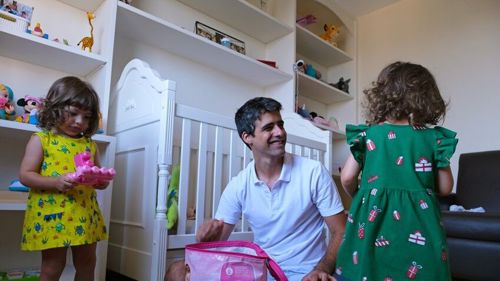
Achcar enjoys travelling, both for work and pleasure, and looks forward to visiting more places with his children as COVID-19 restrictions ease.
Looking at the big picture
Achcar manages a team of four traders and a trainee, plus a team running the crushing part and operational staff who deal with farmers in the interior of Brazil. By the time Brazil starts its day, there is already plenty of action in Asia and Europe to catch up with. Then Achcar focuses on local news. A big move in the local currency could be a trigger for a farmer to sell or not, and that affects how Achcar handles risk in his products. So, he needs to speak to the team inland Brazil who are more closely connected to the farmers and can predict how they might react to developments.
An important part of Achcar’s work is ensuring that the products traded by COFCO International are grown, sourced and transported in a sustainable manner. Particularly relevant for Brazil is a draft European Union law that would require companies to show that their products are not connected to deforestation, whether legal or illegal. It covers commodities including soy, beef, palm oil, soy, cocoa, timber and coffee.
COFCO International’s commitment to support the sustainable and responsible production and sourcing of soy, aiming for full traceability for direct purchases of soy from Brazil by 2023, is an important part of efforts to ensure appropriate social and environmental safeguards.
“I’m an economist so I like to take a closer look at macro-economic and political events. Brazil is quite a volatile country, so the economics is often linked to politics, and I spend at least an hour each morning on the local news to anticipate if there’ll be a move,” he explains.
The market opens at 10.30-11.30am local time, then quotes and indications comes in.
“That’s when the game starts and we are coordinating with traders, brokers, market and hedging agents. When the market closes, we pull it together and place all trades in the system and ensure it is all properly reported to the market risk team,” Achcar says.
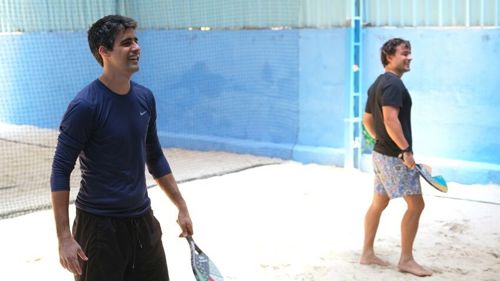
Sports and games are an important part of Achcar's life, and he considers his strategic approach to trading to be similar to planning a game of chess.
People are the key
Achcar is now a father of two girls, identical twins, and his life outside work is key to his motivation and performance. He likes to play sports but prefers team events like football or basketball. “All my friends are going running or doing triathlon or swimming and I hate it. I think it’s boring, because I like to be around with people,” he says.
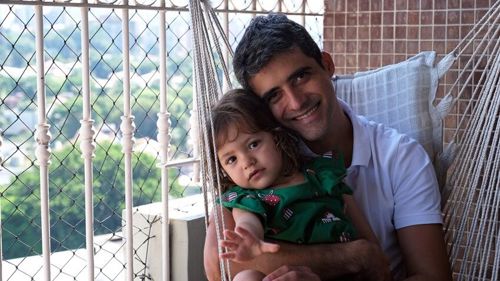
He loves to unwind with movies, ideally complex dramas, and reading books – particularly adventure stories. It’s good practice for the reading up he likes to do on economics and politics.
“My personal target to read at least 24 books a year. It’s mandatory in my life and I don’t go to bed without reading at least 10 or 20 pages. My father reads a lot and I’ve been that way ever since school,” he says. “I’m passionate about books on real life adventure – naval explorers like Shackleton, Cook or Magellan. They would set out in one direction without knowing what they’d find.”
Most of us live very different lives from such explores. Yet their examples – courage and determination, and how they inspired their crews – are something we can learn from in both our personal and professional lives, Achcar believes.
“My job is to operate an asset in a safe and efficient way and to move valuable products around with the least risk, with the result of making money for the company. The way you can do that the best is by having the strongest relationships with the important people in the industry – farmers to brokers, colleagues and other traders,” he says.
“I love being in touch with different people from different cultures, offices and points of view. Sitting at a screen and clicking is the least important part of the job.”
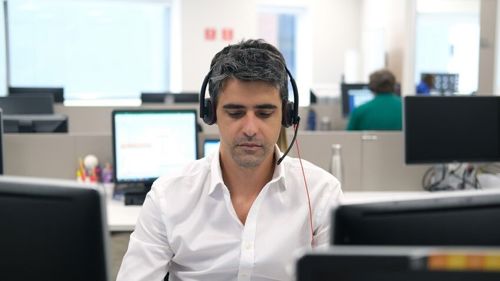
"Trading was the perfect spot for me," Achcar says. "It's a great combination of financial markets and actual physical products (and) business is based on people rather than figures."
